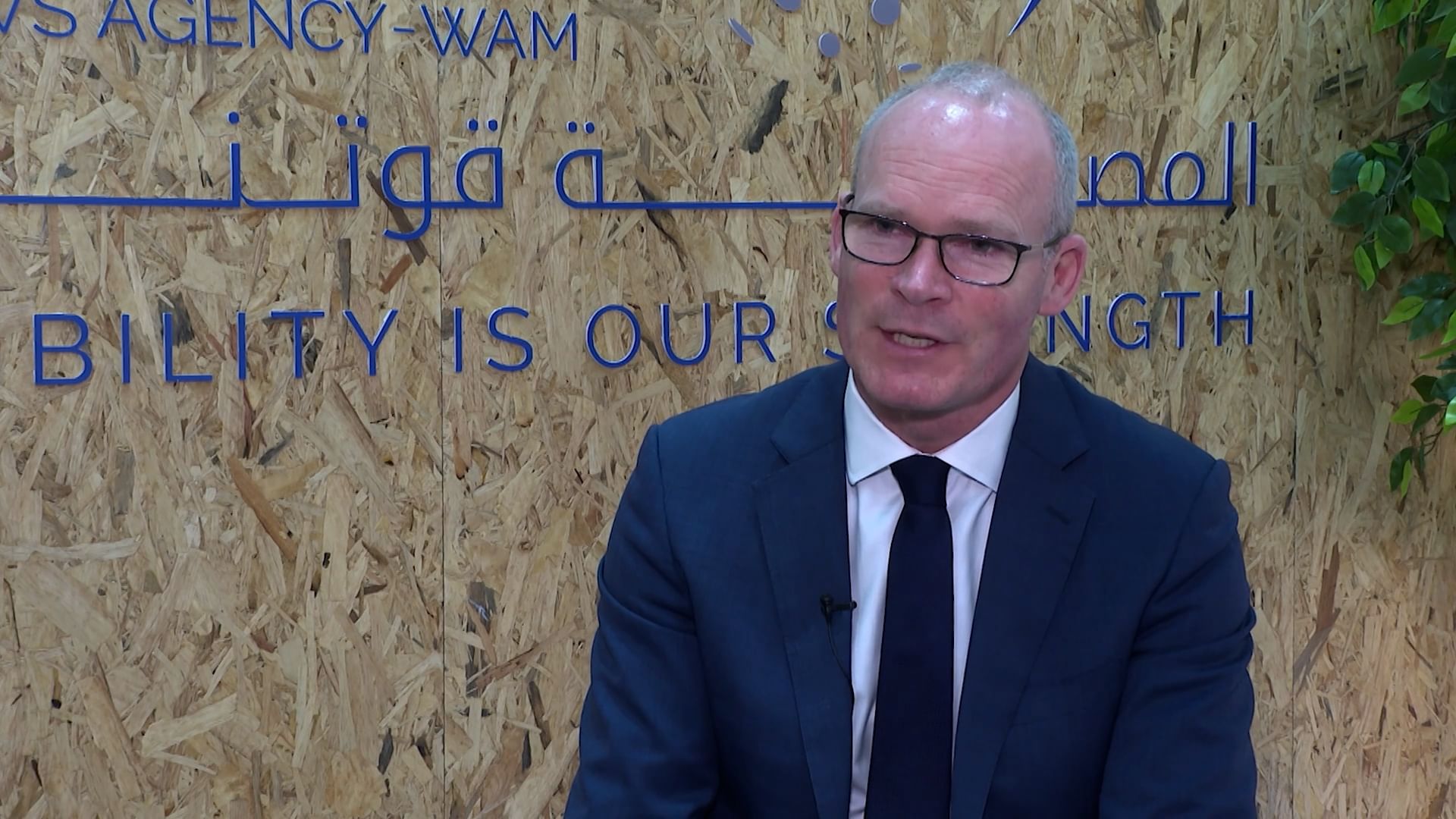Abu Dhabi, UAE–Ireland wants to become a gateway for the UAE and other Gulf states to the European Union (EU) market, Simon Coveney, Ireland’s Minister for Enterprise, Trade and Employment, told the Emirates News Agency (WAM).
As evidence of thriving relations, he highlighted the growing Irish diaspora in Gulf Cooperation Council (GCC) countries. Around 16,000 Irish citizens live and work in the GCC, predominantly in the UAE, across various sectors such as education, healthcare, business, banking, hospitality, engineering and accounting, minister Coveney said.
“We want the UAE, and indeed others in this region like Saudi Arabia and Kuwait, to see Ireland as a gateway into the EU market, because we have been very successful at doing that for many multinationals, and for other parts of the world.”
The Irish official said this in an interview with WAM during the World Trade Organisation’s (WTO) 13th Ministerial Conference (MC13) in Abu Dhabi last week.
The Irish minister drew attention to the investment opportunities in Ireland’s renewable energy projects, which will require funding and management partnerships.
“Ireland will spend close to €100 billion (US$108.50 bn/ AED398.50 bn) on building 37 gigawatts of electricity generation capacity offshore on wind farms over the next 25 years.”
He also invited UAE investors to explore public infrastructure projects in transport, housing and ports.
“Ireland is the fastest growing population in the EU, the youngest population with a very vibrant and growing economy,” minister Coveney stressed.
Ireland is looking for a two-way trade relationship with the region, he stressed, saying “where investors see Ireland as an attractive and reliable destination, and of course, Irish businesses and Irish innovation can be very much part of the growth story here [in the Gulf].”
Citing Ireland’s economic success fuelled by trade, the Irish official said the country transitioned “from one of the poorest countries in Europe to one of the wealthiest. What has delivered that for us? Trad with the rest of the world and with the rest of Europe.”
He suggested that other countries can do the same, while admitting that Ireland has made mistakes along the way “that we are happy to share.”
Minister Coveney advocated for multilateralism and responsible global trade rules. He further explained that understandable differentiation and special arrangements for countries that are different at different stages of development are also important.
“But that does not mean it is a free for all.”
On crucial issues at the World Trade Organisation (WTO), he said Ireland along with the EU supported the WTO’s extension on banning customs duties for e-commerce transactions.
About the dispute settlement mechanism at the WTO, the Irish official expressed optimism to get an agreement by the end of 2024.
He called for greater consensus on formulating global industrial policy to create a level playing field for trade across the world. However, the minister acknowledged that certain economies need time and space to develop and may need more subsidies than others.
On agriculture reforms, he also acknowledged the need to balance public stockholding [a practice that allows countries, especially those in the developing world, to stockpile food reserves to feed their people] for food security with safeguarding international commodity prices.
MC13 concluded on Friday with the acceptance of Abu Dhabi Declaration that reflected consensus on key trade and development policies.
Hosted by the United Arab Emirates Ministry of Economy and the Abu Dhabi Department of Economic Development (ADDED), MC13 took place across five days at the Abu Dhabi National Exhibition Center, beginning on February 26 and concluding at around 2am on March 2nd.
WTO is comprised of 166 Members and is the only multilateral organisation overseeing the rules of trade between nations, dedicated to enabling member states to use trade as a means to raise living standards, create jobs, and improve people’s lives across the world.
Its biennial Ministerial Conference is considered its topmost decision-making forum, bringing together ministers and senior officials from all Members with the aim of reviewing and updating the rules that shape the global trading system.








